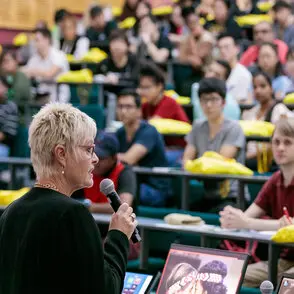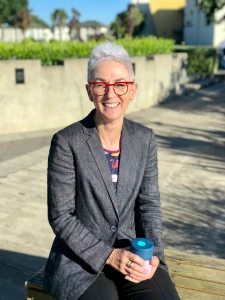Empowering futures: Waikato strengthens ties with migrant and refugee community
The University is striving to create a safe and inclusive environment by engaging with its migrant and former refugee community.
Strengthen the means of implementation and revitalize the global partnership for sustainable development


We are active members of the Australasian Campuses Towards Sustainability (ACTS) group and the Te Pōkai Tara Universities New Zealand SDGs Expert Working Group.
Our Waikato Public Law and Policy Research Unit which produces focused research on topical issues relating to the regulation of civil society, constitutional and administrative law and Indigenous governance.

Hosting the 4th Aotearoa Sustainable Summit 2022-2023 which will have a special focus on incorporating Māori, Indigenous and flax roots community perspectives when designing solutions to advance the SDGs.
Our understanding of the research and teaching needs of business and industry through our Business Advisory Board and our Engineering Industry Advisory Group.

Our contribution to the New Zealand Association for Environmental Education as an Executive Member.
The ongoing contribution of the Waikato UNWTO Tourism Monitoring Observatory to the UNWTO's global network of tourism observatories.
We support and work closely with the team at the Waikato Wellbeing Project. This community-led initiative has set ten wellbeing targets for the Waikato region, based on the United Nations Sustainable Development Goals (SDGs). A number of our staff were involved in helping to shape these targets and renowned urban ecologist, Professor Bruce Clarkson now leads the workstream for SDG 13 - Life on Land. The Project’s ultimate goal is to achieve a more environmentally sustainable, prosperous and inclusive region by 2030 and we are honored to be a part of it.
We have a wide range of papers and programmes that directly address sustainability and the SDGs. Our Bachelor of Environmental Planning degree includes a number of papers focused on the development of sustainable cities and mitigating the effects of climate change. The Waikato Management School also has a range of offerings looking at sustainability in the context of human resources, responsible leadership, business strategy and the economics of the environment. We also have rich offerings in geography, exploring the human dimensions of environmental change, gender and culture, disasters and development and Māori Lands and Communities.
The University of Waikato is a global university: we are connected internationally through numerous research, teaching and mobility partnerships; we deliver education offshore and we attract top international academic staff as well as international students from over 80 countries. We know that global collaboration increases the impact of our research, enhances opportunities for our staff and enriches the student experience. We are committed to fostering this collaboration through a portfolio of active and sustainable global partnerships.
Professor Chellie Spiller from the Waikato Management School is globally renowned for her research about Indigenous leadership in business. She is passionate about supporting Māori to create authentic and sustainable wealth and wellbeing in New Zealand and has authored several books on the topic. She currently has an important role within Ngā Pae o te Māramatanga, New Zealand’s Māori Centre of Research Excellence as a researcher and theme leader.
 Professor Lynda Johnston was appointed to the role of Assistant Vice-Chancellor Sustainability in April 2021. Her focus is on shaping the University’s strategic academic approach to sustainability and environmental management, and providing academic leadership and oversight of its activities as measured against the SDGs.
Professor Lynda Johnston was appointed to the role of Assistant Vice-Chancellor Sustainability in April 2021. Her focus is on shaping the University’s strategic academic approach to sustainability and environmental management, and providing academic leadership and oversight of its activities as measured against the SDGs.
You are currently viewing the website as an international visitor, you might want to change to domestic.
You're an international student if you are:
You're a domestic student if you are: